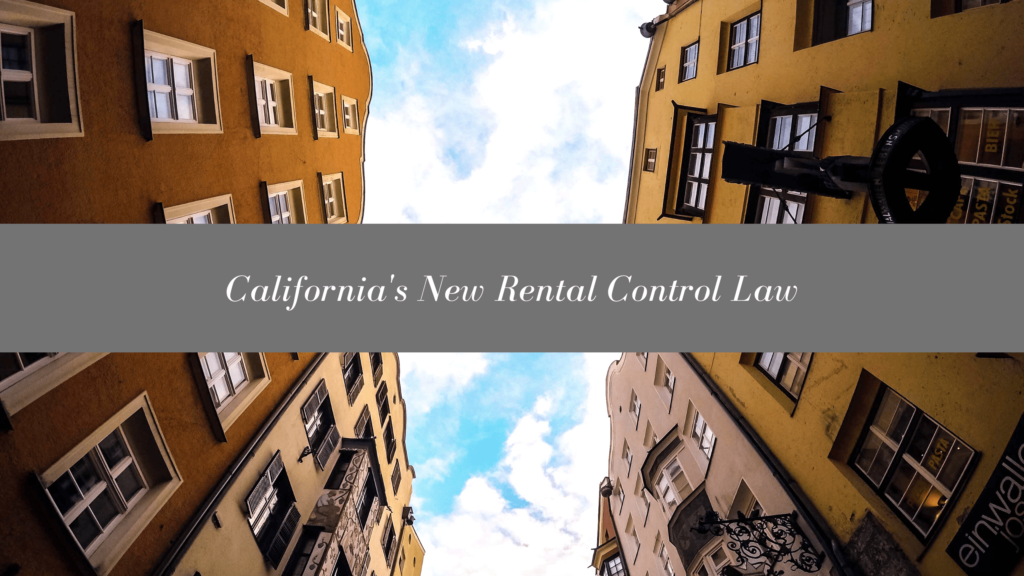
If you’re a landlord in California, you need to be aware of the new rent control laws and how they will affect your investment property.
Recently, Governor Gavin Newsom signed The Tenant Protection Act of 2019 in October, limiting the amount that owners can increase rent on most properties over the next 10 years.
As you’ll probably remember, statewide rent control was defeated last year on Election Day. However, this new law is a result of legislators, housing advocates, and even landlord and apartment associations coming together to settle some details for a new solution to the housing situation in California.
You may not like these new laws, but you have to follow them. So, we’re here today to explain and explore what you now need to know about rent control and just cause evictions.
Restrictions on Rent Increases in California
According to The Tenant Protection Act of 2019, landlords cannot raise the rent more than five percent each year, plus inflation. You don’t have to stop rent increase altogether, but you cannot increase what your tenants pay by more than five percent, plus the rate of inflation, which the Consumer Price Index will continue to set. Prepare to follow this five percent rule for the next 10 years.
Exemptions to Rent Control Protections
Not all rental properties are subject to this cap on increases. For example, there is no limit to how much rent can be raised on apartments in buildings that were built in the last 15 years. The cap also doesn’t apply to single-family homes that private landlords rent out. But, if the single-family home is owned by an institutional investment company or corporate investors, the five percent rule applies.
This law won’t impact any apartments that are currently rent-controlled. It does provide additional protections to tenants in those properties, however.
Additional Law Pertaining to Just Cause Evictions
The Tenant Protection Act of 2019 also makes it more difficult to evict a tenant from your rental property. You’ll need to have a legal and documented reason.
If your tenant has been living in your property for more than a year, you cannot evict that tenant without cause. What does this mean? You’ll have to have a documented reason to evict your tenant. There has to be some kind of lease violation that can be validated and proven. If your tenant stops paying rent or violates your rental agreement or conducts illegal activities in the home, you can evict them. But, the burden of proof will be on you to demonstrate that the eviction is “just.” You will have to be more careful about documenting the issue.
This new law goes into effect on January 1, 2020, and it’s only one of 18 other housing-related bills that the governor signed. We can provide more information for you about the additional bills, but most landlords will be most impacted by rent control and just cause eviction.
 This is a good reminder that the laws change all the time, especially in California. If you’re struggling to keep up, contact us at Parks Property Management. Protecting you and your property is our biggest concern, and we’re here to make your investment experience a better one.
This is a good reminder that the laws change all the time, especially in California. If you’re struggling to keep up, contact us at Parks Property Management. Protecting you and your property is our biggest concern, and we’re here to make your investment experience a better one.
